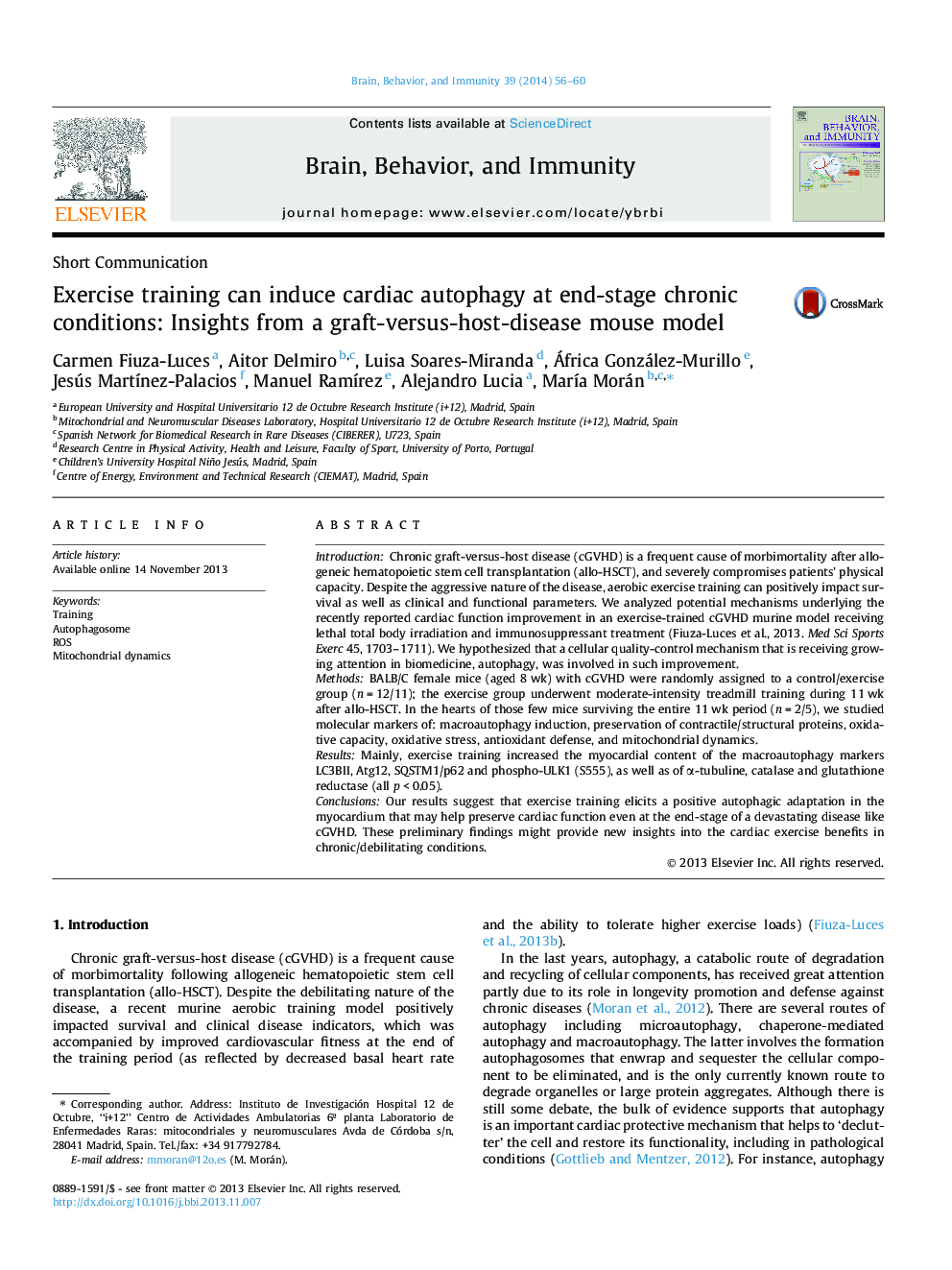| Article ID | Journal | Published Year | Pages | File Type |
|---|---|---|---|---|
| 922051 | Brain, Behavior, and Immunity | 2014 | 5 Pages |
Highlight•Myocardial exercise-induced autophagy may help preserve cardiac function at the end-stage of debilitating conditions such as chronic graft-versus-host disease.
IntroductionChronic graft-versus-host disease (cGVHD) is a frequent cause of morbimortality after allogeneic hematopoietic stem cell transplantation (allo-HSCT), and severely compromises patients’ physical capacity. Despite the aggressive nature of the disease, aerobic exercise training can positively impact survival as well as clinical and functional parameters. We analyzed potential mechanisms underlying the recently reported cardiac function improvement in an exercise-trained cGVHD murine model receiving lethal total body irradiation and immunosuppressant treatment (Fiuza-Luces et al., 2013. Med Sci Sports Exerc 45, 1703–1711). We hypothesized that a cellular quality-control mechanism that is receiving growing attention in biomedicine, autophagy, was involved in such improvement.MethodsBALB/C female mice (aged 8 wk) with cGVHD were randomly assigned to a control/exercise group (n = 12/11); the exercise group underwent moderate-intensity treadmill training during 11 wk after allo-HSCT. In the hearts of those few mice surviving the entire 11 wk period (n = 2/5), we studied molecular markers of: macroautophagy induction, preservation of contractile/structural proteins, oxidative capacity, oxidative stress, antioxidant defense, and mitochondrial dynamics.ResultsMainly, exercise training increased the myocardial content of the macroautophagy markers LC3BII, Atg12, SQSTM1/p62 and phospho-ULK1 (S555), as well as of α-tubuline, catalase and glutathione reductase (all p < 0.05).ConclusionsOur results suggest that exercise training elicits a positive autophagic adaptation in the myocardium that may help preserve cardiac function even at the end-stage of a devastating disease like cGVHD. These preliminary findings might provide new insights into the cardiac exercise benefits in chronic/debilitating conditions.
